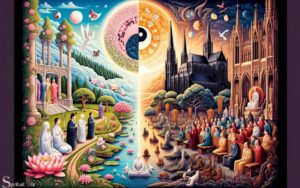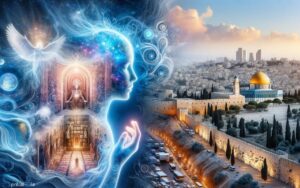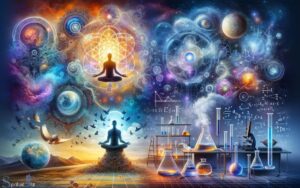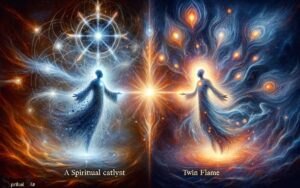Spiritual Vs Religious Test: Practices!
In today’s quest for meaning, many individuals grapple with the concepts of spirituality and religion. The Spiritual vs Religious Test is a tool designed to help people discern their inclinations towards personal spirituality or organized religion.
By examining one’s beliefs, practices, and connections to the divine or a higher power, this test can offer insights into where a person may find their sense of purpose and belonging.
Spirituality and religion, while often intertwined, cater to different aspects of human experience. Spirituality is more about personal growth and finding one’s own path to understanding the mysteries of life.
Religion, on the other hand, tends to be structured around a set of organized beliefs and practices shared by a community.
Here are key differences:
Spirituality:
- Focuses on personal inner experience.
- Often individualistic and not bound by a specific set of rules.
- Emphasizes personal connection with the divine or the universe.
Religion:
- Centers around organized practices and doctrines.
- Involves community worship and shared beliefs.
- Typically follows established rituals and teachings.
For example, a spiritually inclined person might meditate to seek inner peace, while a religious individual might attend a church service to connect with their faith community.
Embark on a reflective journey with the Spiritual vs Religious Test, designed to illuminate the paths of inner peace and communal faith. Discover where your heart finds its truest expression.
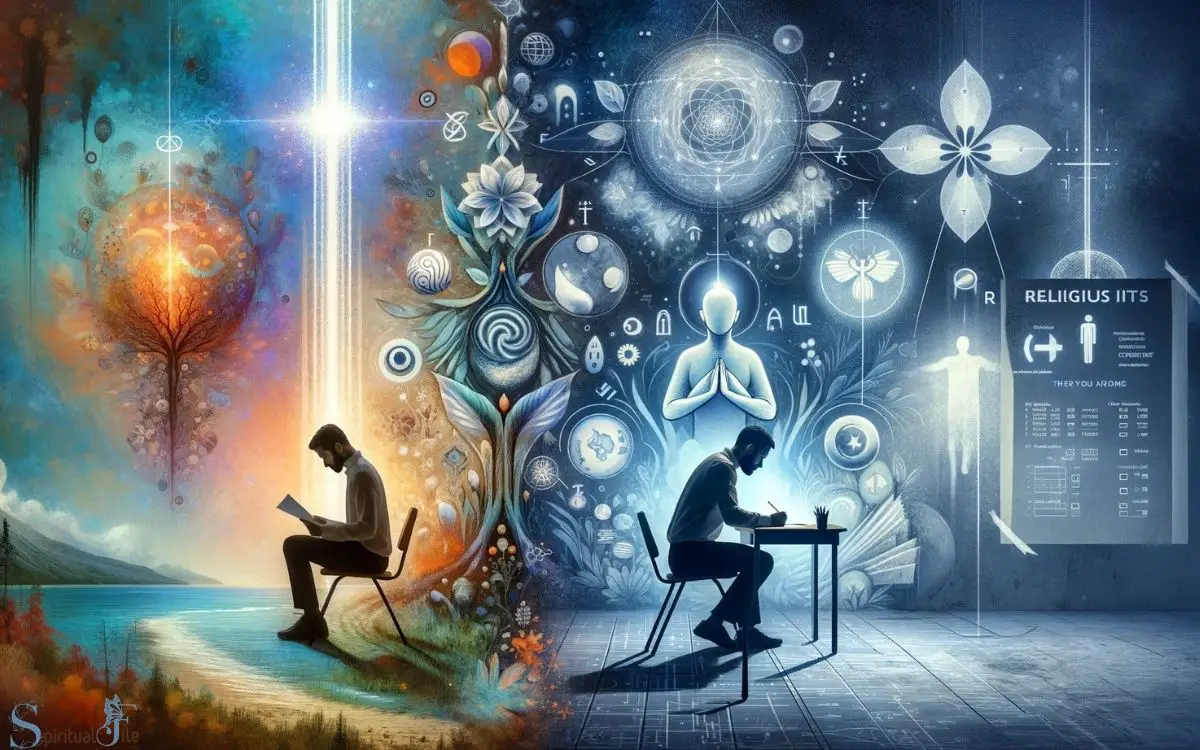
Key Takeaway
6 Aspects: Spiritual Vs Religious Test
| Aspect | Spiritual | Religious |
|---|---|---|
| Beliefs | Personal, diverse | Institutional, dogmatic |
| Practice | Individual, flexible | Communal, structured |
| Rituals | Minimal or optional | Integral and prescribed |
| Authority | Inner guidance | Religious authorities |
| Community | Varied | Religious congregations |
| Doctrine | Open interpretation | Strict adherence |
Understanding Spirituality and Religion
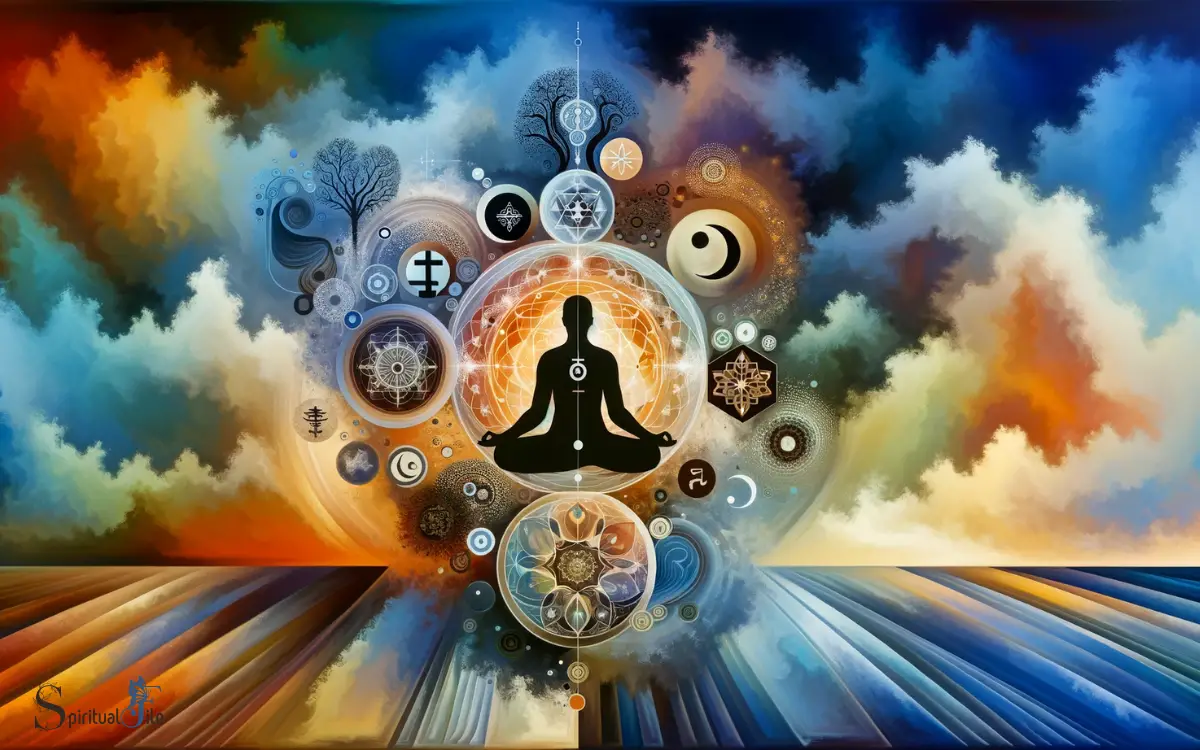
Understanding spirituality and religion involves delving into the core beliefs and practices that individuals adhere to in their pursuit of higher meaning and divine connection.
Spirituality often encompasses a personal quest for understanding life’s purpose, seeking meaning beyond the material world, and exploring one’s relationship with the universe. It is characterized by introspection, meditation, and a sense of interconnectedness.
On the other hand, religion typically involves organized systems of beliefs, rituals, and moral codes shared by a community. It provides a framework for understanding the divine, offers guidance for ethical living, and often includes communal worship.
While spirituality is often individualistic, religion can be communal, fostering a sense of belonging and shared identity.
Both spirituality and religion play vital roles in shaping individuals’ worldview and guiding their moral and ethical choices.
Exploring Personal Beliefs
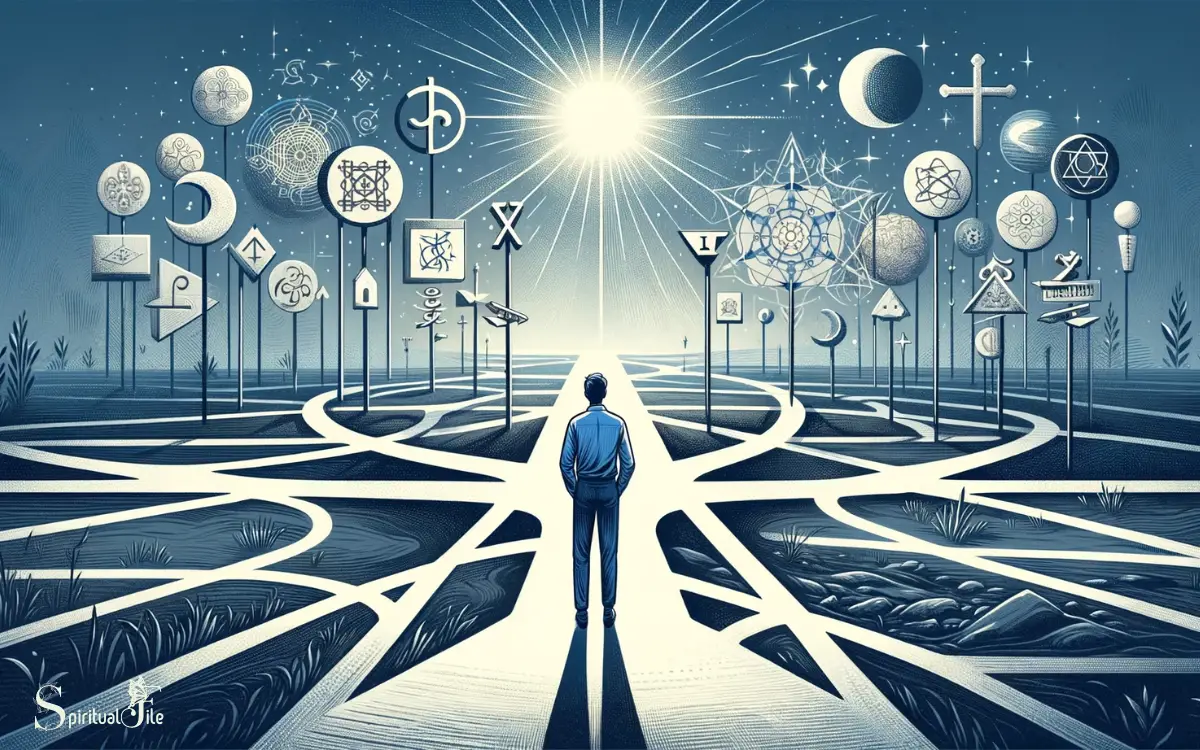
The inner faith journey and personalized spiritual practices are integral aspects of understanding one’s personal beliefs.
As we delve into this topic, it is important to recognize the diversity of individual spiritual paths and the significance of these personalized beliefs in the broader context of spirituality and religion.
Inner Faith Journey
In the quest to understand personal beliefs, individuals embark on an inner faith journey to explore and define their spiritual and religious perspectives.
This journey involves introspection, study, and contemplation, enabling individuals to develop a deeper understanding of their personal faith.
Here are three key elements of the inner faith journey:
- Self-reflection: Individuals take time to reflect on their experiences, values, and principles, seeking to understand how these shape their spiritual and religious beliefs.
- Seeking knowledge: Engaging in study and learning about different religious and spiritual traditions allows individuals to broaden their perspectives and gain insight into various faith practices.
- Spiritual practices: Exploring different forms of prayer, meditation, or rituals can help individuals connect with their inner selves and establish a more profound spiritual connection.
As individuals progress through their inner faith journey, they often transition into personalized spiritual practices, allowing them to integrate their newfound insights into their daily lives.
Personalized Spiritual Practices
Transitioning from the inner faith journey, individuals progress into personalized spiritual practices as they seek to explore and integrate their evolving beliefs into their daily lives.
This phase involves a deep exploration of personal beliefs and values, often leading to a more customized approach to spirituality.
It encompasses a wide range of activities such as meditation, prayer, mindfulness, and engaging in rituals that resonate with an individual’s spiritual inclinations.
These practices are tailored to align with one’s unique understanding of the divine and their place in the universe. The emphasis is on fostering a deeper connection with the spiritual realm and integrating these beliefs into everyday actions.
Personalized spiritual practices provide a means for individuals to deepen their spiritual awareness and find greater fulfillment in their lives.
Connecting With Higher Powers
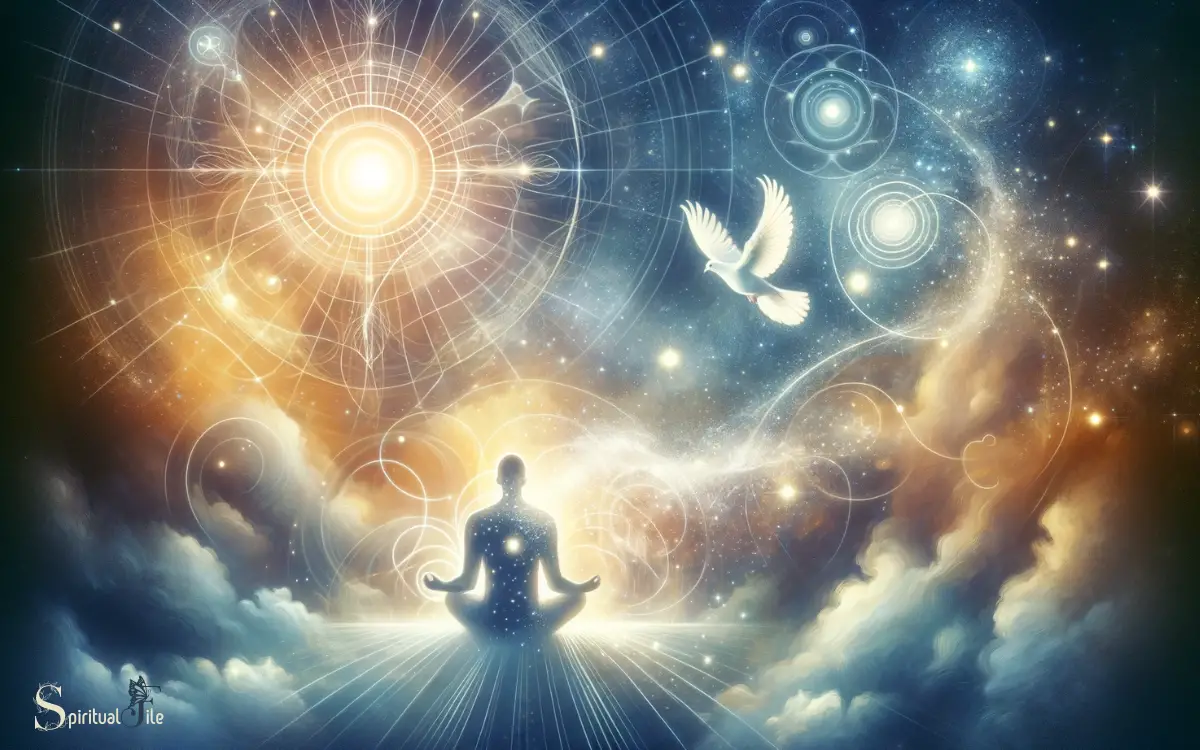
When it comes to connecting with higher powers, personal spiritual experiences and the importance of rituals are essential points to consider.
These experiences can provide individuals with a sense of connection to something greater than themselves, while rituals can offer a structured way to engage with and honor these higher powers.
Exploring how these aspects intersect with one’s spiritual or religious beliefs can offer valuable insights into the nature of one’s faith.
Personal Spiritual Experiences
Experiencing a connection with higher powers often leads individuals to seek deeper spiritual understanding and meaning in their lives. Personal spiritual experiences can take various forms, and they often play a significant role in shaping an individual’s beliefs and values.
Some common personal spiritual experiences include:
- Mystical Encounters: These are profound experiences where individuals feel a deep sense of oneness with the universe or a higher power, often leading to a sense of awe and wonder.
- Divine Guidance: Many individuals report receiving guidance or messages from higher powers through prayer, meditation, or signs in their daily lives, which can provide a sense of direction and comfort.
- Healing and Transformation: Some people attribute profound personal growth, emotional healing, and physical recovery to their spiritual connections, finding strength and resilience in challenging times.
Importance of Rituals
How do rituals facilitate the connection with higher powers in spiritual practices?
Rituals play a vital role in spiritual practices by serving as a means to connect with higher powers. These ceremonial acts create a focused and intentional space for individuals to communicate with the divine.
Through rituals, practitioners can express devotion, seek guidance, and cultivate a sense of transcendence. The repetition of these symbolic actions can also instill a sense of discipline and mindfulness, allowing individuals to attune themselves to the spiritual realm.
Furthermore, rituals often carry deep cultural and traditional significance, serving as a bridge between the earthly and the divine.
By engaging in these prescribed practices, individuals can establish a profound and meaningful connection with higher powers, fostering a sense of spiritual fulfillment and guidance.
Embracing Rituals and Traditions
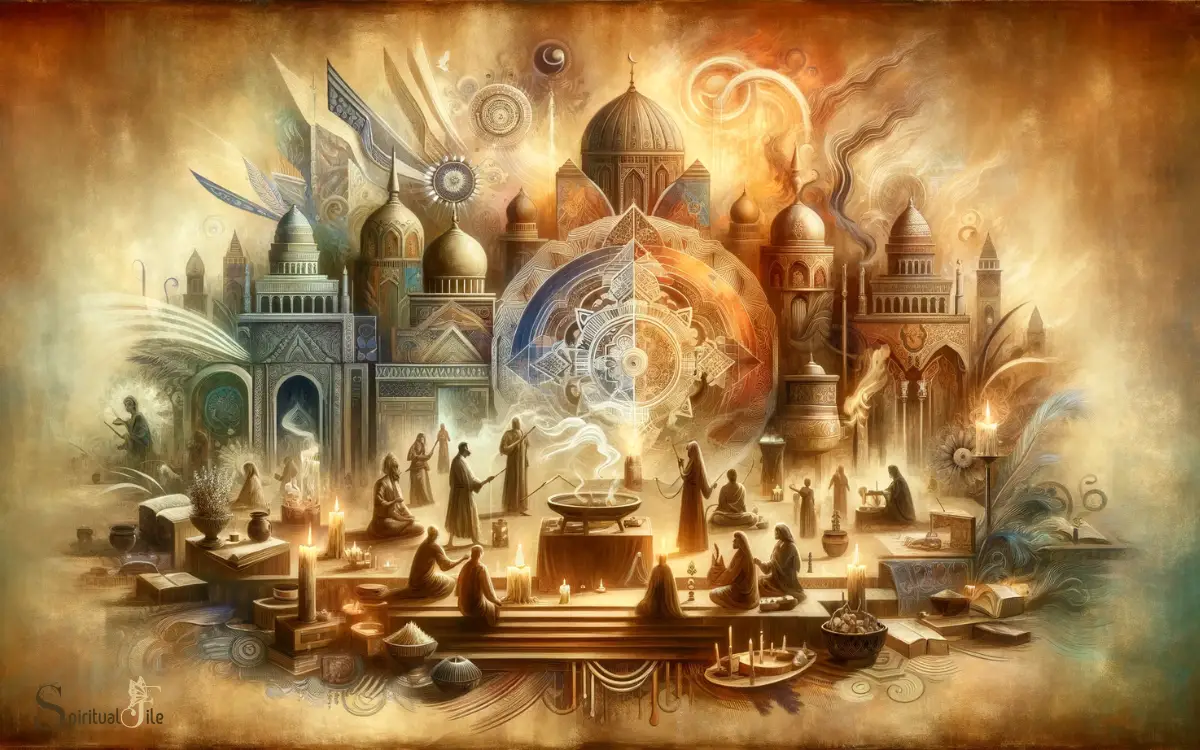
The embrace of rituals and traditions is a defining aspect of spiritual and religious practices worldwide. These practices serve as a means of connecting individuals to something greater than themselves and fostering a sense of community and belonging.
Embracing rituals and traditions allows individuals to honor their cultural heritage and provide a sense of continuity and stability in an ever-changing world.
This embracing also facilitates the transmission of values, beliefs, and history from one generation to the next, ensuring the preservation of cultural identity.
Furthermore, participating in rituals and traditions can offer a sense of comfort, purpose, and meaning, contributing to overall well-being and mental health.
Ultimately, the embrace of rituals and traditions plays a crucial role in shaping individual and collective identities, fostering a sense of belonging, and providing a framework for understanding the world.
Seeking Inner Peace and Fulfillment
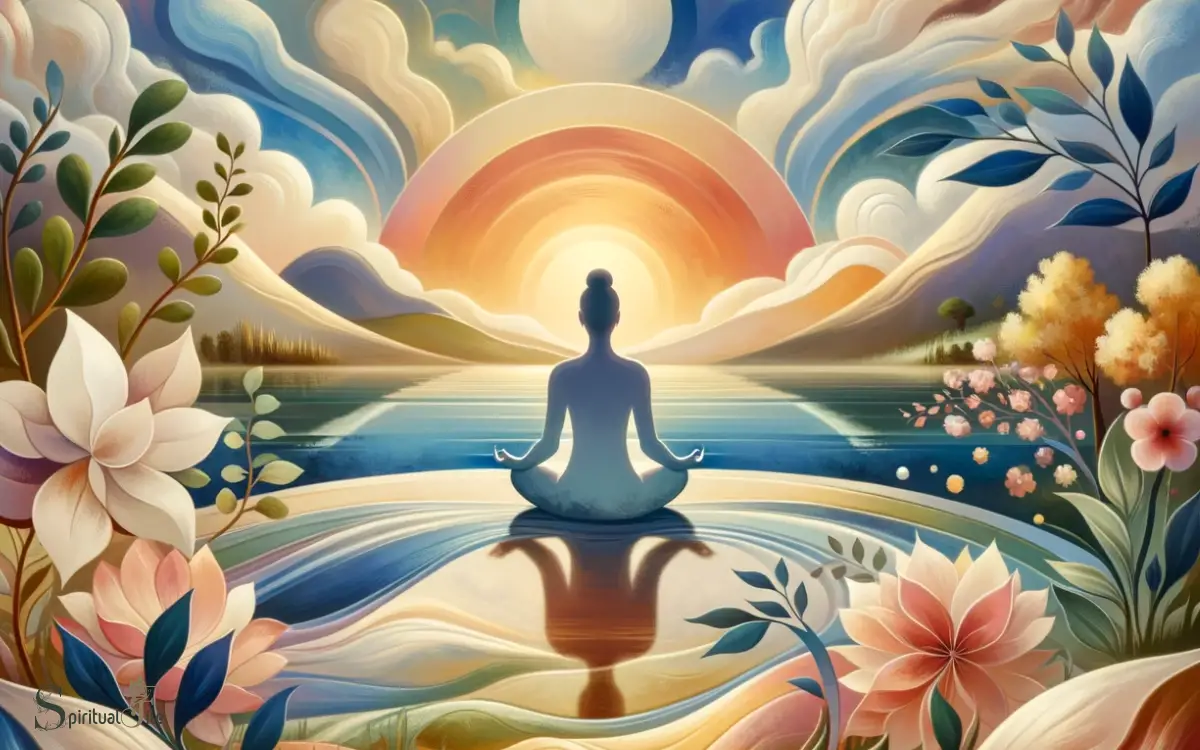
In the pursuit of inner peace and fulfillment, individuals often turn to spiritual or religious practices to cultivate a sense of tranquility and purpose.
These practices can provide a framework for personal growth and a deeper understanding of life’s meaning. Whether through prayer, meditation, or contemplation, the aim is to connect with something greater than oneself and find solace in times of difficulty.
Spiritual and religious communities also offer support and guidance, fostering a sense of belonging and shared values that contribute to a fulfilling life.
Moreover, the emphasis on compassion, gratitude, and self-reflection within these practices can lead to a greater sense of inner peace and contentment.
Ultimately, the quest for inner peace and fulfillment is deeply personal, and the choice between spiritual and religious paths is a reflection of individual beliefs and values.
Navigating Morality and Ethics
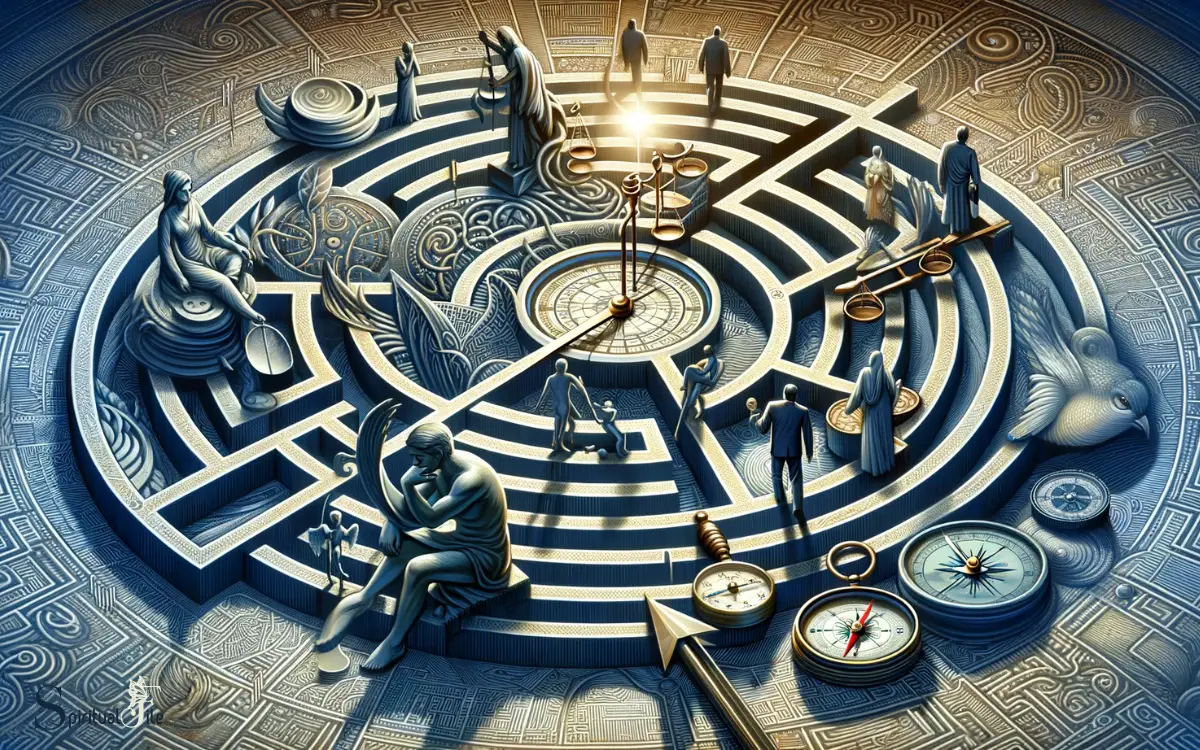
Navigating morality and ethics involves examining the principles and values that guide individuals’ actions and decisions. Both spiritual and religious practices provide a framework for understanding and applying these concepts in daily life.
When considering morality and ethics within a spiritual or religious context, individuals may:
- Reflect on the teachings and scriptures of their faith to discern right from wrong.
- Seek guidance from spiritual or religious leaders to understand how to apply moral principles in complex situations.
- Engage in practices such as prayer, meditation, or rituals to cultivate virtues like compassion, honesty, and integrity.
By exploring these aspects, individuals can develop a deeper understanding of how spirituality and religion influence ethical decision-making. This understanding can lead to greater clarity in navigating moral dilemmas and ethical challenges.
Transitioning into the subsequent section about ‘finding common ground and harmony’, it is imperative to recognize the potential for shared values and principles across spiritual and religious beliefs.
Finding Common Ground and Harmony
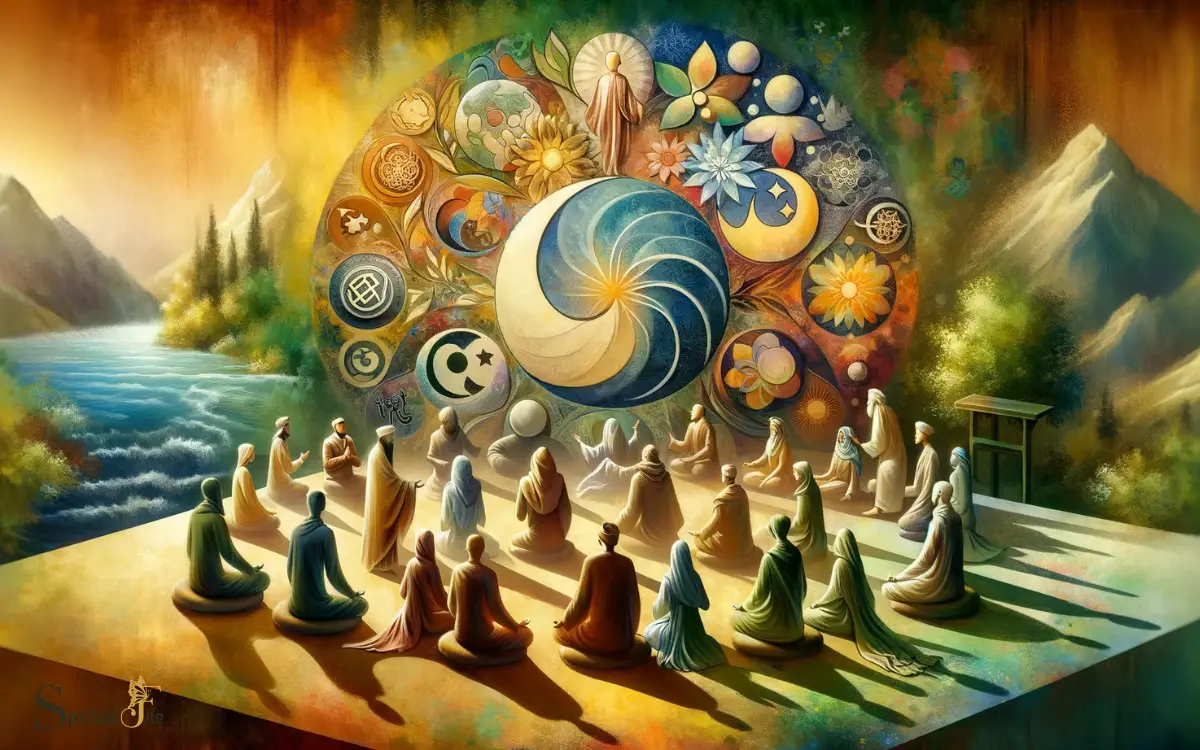
Drawing from the teachings and scriptures of their faith, individuals seek to find common ground and harmony in applying moral principles across spiritual and religious beliefs.
This pursuit often involves recognizing shared values such as compassion, kindness, and justice, while also respecting the unique aspects of each tradition.
It requires open-mindedness, empathy, and a willingness to engage in meaningful dialogue to understand and appreciate different perspectives.
Finding common ground and harmony involves focusing on the universal principles that unite people rather than emphasizing the differences.
It also entails recognizing that diverse spiritual and religious beliefs can coexist peacefully, contributing to a more inclusive and understanding society.
By fostering mutual respect and understanding, individuals can strive to create a world where spiritual and religious diversity is celebrated and where cooperation and harmony prevail.
How Do Spiritual Practices Differ from Living in an Imperial Order Ethically?
Spiritual practices often center on connecting with a higher power or finding inner peace, while ethical living within an imperial order focuses on adhering to societal rules and regulations. The key difference between spiritualism vs ethical living lies in the motivation and source of guidance for one’s actions.
FAQ About Spiritual Vs Religious Test
How Do Different Religions View the Concept of Spirituality?
Different religions have varying perspectives on spirituality, with some emphasizing personal connection with the divine and inner growth, while others may focus more on adherence to specific doctrines and rituals.
Understanding these differences can foster mutual respect and dialogue.
What Are Some Common Misconceptions About Spiritual and Religious Beliefs?
Common misconceptions about spiritual and religious beliefs include the idea that they are mutually exclusive, when in fact, many individuals identify as both spiritual and religious.
Another misconception is that spirituality is solely individualistic, disregarding communal aspects.
How Can One Incorporate Both Spirituality and Religion Into Their Daily Life?
One can incorporate both spirituality and religion into their daily life by finding common ground between the two, engaging in practices that resonate with both aspects, and seeking guidance from spiritual and religious leaders.
Are There Any Specific Rituals or Traditions That Are Shared Among Different Spiritual and Religious Practices?
Various spiritual and religious traditions share common rituals, such as prayer, meditation, and acts of service.
These practices provide a sense of connection, purpose, and transcendence. They serve as a unifying force among diverse belief systems.
How Do Individuals Navigate the Intersection of Morality and Ethics Within Their Spiritual or Religious Beliefs?
Individuals navigate the intersection of morality and ethics within their spiritual or religious beliefs by seeking guidance from scriptures, religious leaders, and personal reflection.
They strive to align their actions with principles and values central to their faith.
Conclusion
The journey of spirituality and religion is like a river flowing through the landscape of human existence, carving its path through individual beliefs and traditions.
It is a quest for connection with the divine, a search for inner peace and fulfillment, and a navigation of moral and ethical complexities.
Despite the differences, there is a common ground where harmony can be found, creating a tapestry of diverse beliefs woven together in unity.

